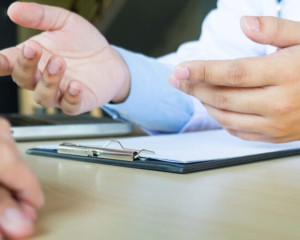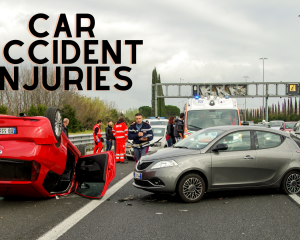Accidents happen every day in Florida and if someone is injured there are often legal consequences. Sometimes medical attention is involved, sometimes property damage, sometimes there are totally unforeseen expenses.
There are many factors to consider when it comes to personal injury and who is liable. Let us try and guide ourselves through the maze of eventualities and options.
Liability For Personal Injury
When a personal injury arises from an accident, you will need to seek medical attention immediately. The next question on your mind is always: “who is liable”?
Florida Is A No-Fault State
Personal injury comes in many forms. When it comes to automobile accidents, Florida is a no-fault state. Florida has an automobile insurance statute that requires every driver to have a minimum of $10,000 coverage to cover medical expenses and lost wages resulting from the accident. So personal injuries from a car accident in Florida are approached in a different way than other personal injury claims.
Whatever the case may be, all personal injury claims require you to prove liability. This means you have to prove the fault lies with another person who is at fault or an entity, as an insurance company.
What Is Liability?
Liability is the legal term used in law to help identify who is at fault in personal injury cases. It is necessary to establish liability before you will receive any compensation for your personal injury.
Therefore, liability is the main focus for any personal injury claim, regardless of the type of injury, be it property damage, dog bite/attack, slip & fall, automobile accident, or any lost wages and expenses resulting from the incident.
Establishing Liability
Liability is identified by proving there was negligence on the part of the wrongdoer.
In Florida, the waters of a personal injury claim can be difficult to navigate. There are a ton of rules and procedures that must be followed to make your claim viable. This process depends on the severity of your injuryíes and your ability to establish who is liable.
Was the other party careless? Was the other party able to foresee that their actions could cause personal injury? Did they take the necessary precautions to avoid the accident? Was it done intentionally? Proving liability depends on answering these questions and your claim for compensation will pivot on all of the evidence.
It is important to understand that while going through the process of getting compensation for your personal injury that party who is at fault will sometimes try to deflect liability from themselves and redirect it to you.
With car accidents in “No-fault” Florida, it is relatively easy to identify liability. Police accident reports are usually done accurately and faults can be easily established.
No matter what the case is, with all personal injury claims, you can expect that the insurance company will try to deny liability. To prove who is liable, you will need to present evidence to establish negligence.
Reasonable Conduct - Negligence Rules
The cause of your personal injury will lead you to establish damages associated with your claim.
Negligence is conduct that falls short of what a reasonable person would do to protect another person from foreseeable risk of harm. Florida law states clearly that a negligent person can be held liable for personal injuries and property damage.
To determine reasonable conduct, you first must examine the circumstances that caused any injuries. Then you can ask the question: “What would a reasonable person have done under the same circumstances?”
Any actions that would have been reasonable under those same circumstances are considered to be the correct conduct. Any actions that were not reasonable under identical circumstances would be considered negligent. Proving negligence proves liability.
In Florida, there is no specific formula for proving negligence. Personal injury claims would not be necessary if self-interest were not a factor. Negligence needs to be proven in order to support where the fault lies. Liability relies on evidence.
Fortunately, sometimes negligence is so clear that there is no argument to defend it. In such cases, insurance companies will compensate you right away. However, they will often begin negotiations by offering you less compensation than you are seeking.
Life is often complicated though and most cases are not so clear-cut. This means that you, as a victim, must show that the at-fault party’s actions were unacceptably negligent.
Negligent Conduct Proves Liability
It is difficult to put a strong case of liability together. The system, the courts, are obligated to look at the “totality of circumstances”. To define negligence, all of the circumstances surrounding the injury will be examined. This is the way the number of damages awarded is considered.
Evidence will reveal itself in this process and this evidence is essential to determine the amount of compensation that should be awarded.
Again, we have liability, which is determined by negligence, which is supported by evidence from the “totality of circumstances”, i.e. all of the circumstances and facts surrounding the incident.
Weight Of Evidence
Personal injury cases are conducted in civil court, not a criminal court. In criminal cases, liability must be proven beyond a reasonable doubt. In civil court, liability is determined by evaluating the evidence available in the case.
This means you must prove that negligence was the main cause of your injuries. In Florida, there is a 51% or more rule. The weight of the evidence against the defendant must be 51% or higher than the evidence against you. The majority of evidence must show that the responsible party was negligent.
Direct And Proximate cause
To determine liability, the primary cause must be established. This is key to supporting your claim. Just proving that another party's negligence was the cause of your personal injuries is not always enough. You must also prove that someone else's negligence is the direct and proximate cause of your injury.
Often there are more than 2 parties involved in an accident. Therefore, it may be that more than one person or entity is responsible for your injuries.
Where liability lies constantly affects your case. If you cannot prove liability, you do not have a case.
Damages
Once you have proven that the incident directly caused your injuries, you must prove your personal injury damages. This means you must show the financial and emotional costs related to your injuries.
Liability for injuries can be both tangible and intangible. Tangible damages are the finances needed to treat your injuries and recover/repair the property. For example:
- Medical bills
- Physical therapy bills
- Out-of-pocket expenses
- Pharmaceutical expenses
- Transportation (driver to get to the supermarket and home)
- Lost wages and future earnings
Intangible damages are the finances needed to cover costs of things like:
- Emotional distress
- Mental anguish
- Psychological trauma
Liability And Your Personal injury Case
Liability must be established in order to pursue your claim effectively. You should be legally protected and supported if you have suffered a personal injury.
The factors and circumstances that are associated with your case should be discussed with a professional who has experience with navigating the process in Florida. If you or a loved one has experienced a personal injury, you should not hesitate in scheduling a consultation.





